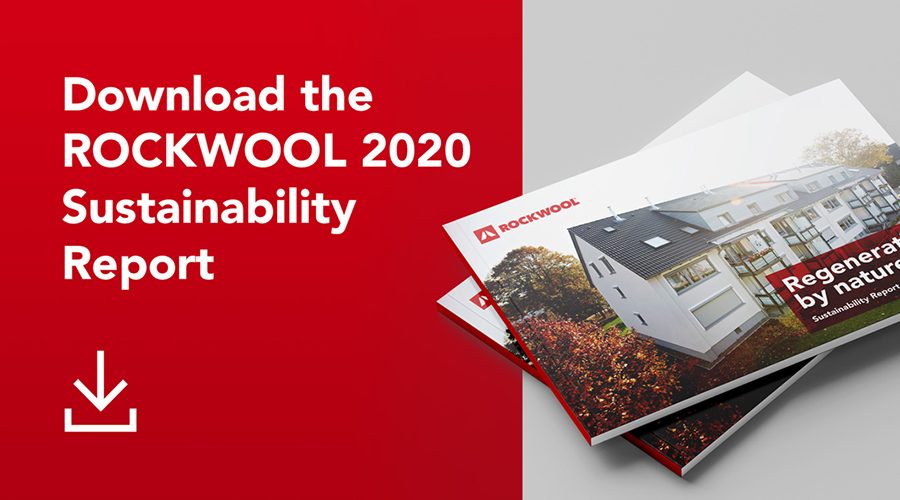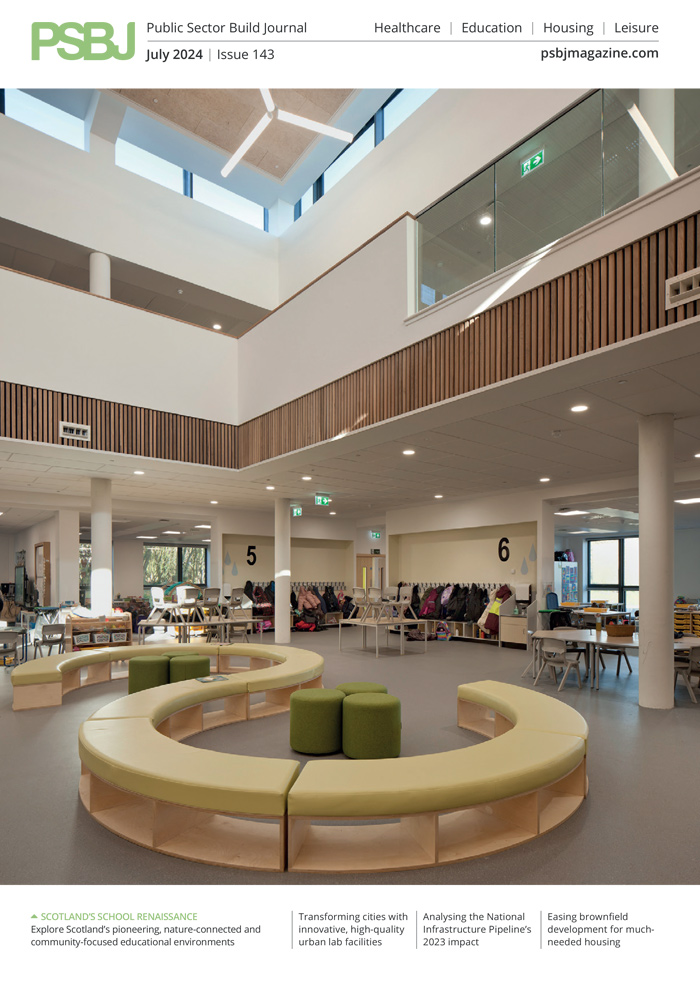Trucost, part of S&P Global, has classified all ROCKWOOL Group products as having a positive impact on the UN Sustainable Development Goals, while the company has met or exceeded two of its six sustainability targets ahead of time.
ROCKWOOL
As governments and societies continue grappling with the COVID-19 pandemic, greening the economic recovery takes on even greater significance. ROCKWOOL Group’s Sustainability Report 2020 details the contribution the company’s product makes toward this goal, including updates on operational improvements and progress on supporting the UN Sustainable Development Goals.
Reducing energy and resource consumption is essential to addressing the global climate challenge, and ROCKWOOL products play a key role. “Saving energy first and then using renewables is the most cost-effective way of decarbonising society. That is why we continue saying the best approach is to ‘use less and green the rest’”, comments ROCKWOOL CEO Jens Birgersson.
Jens Birgersson continues, “We are proud that S&P Global Trucost has again classified all our products as SDG positive, meaning they have a positive impact on reaching the UN Sustainable Development Goals. Sustainability is at the core of our business, and we pursue a fact-based and auditable approach to document how we maximise our products’ impact and minimise the impact of our operations”.
Notably, the S&P Global Trucost organisation has assessed more than 15,000 companies globally and finds that ROCKWOOL is among top 10 when it comes to the positive impact from its products.
Further supporting the business’ positive environmental impact, ROCKWOOL estimates that 95 percent of the revenue from its insulation business is taxonomy eligible in the EU climate mitigation category, thereby contributing to sustainable development in Europe. In terms of further reducing its operational footprint, in December 2020, ROCKWOOL committed itself to a long-term decarbonisation plan, the goals of which are verified and validated by the Science Based Targets initiative.
Commenting on ROCKWOOL’s efforts to reduce its operational impact, Jens Birgersson states, “During 2020, we continued to further strengthen the circularity of our business by meeting or exceeding two of our six goals two years ahead of schedule, and we made good progress on two others”.
Birgersson concludes, “Despite the challenges still facing the global community, we are optimistic about the future. The solutions to many of the world’s challenges already exist, especially in the built environment. At ROCKWOOL, we look forward to continuing to do our part to create more resilient, healthier and safer communities and a more circular economy”.
Highlights of ROCKWOOL’s sustainability performance in 2020
Over the lifetime of its use, ROCKWOOL building insulation sold in 2020 will save 100 times the carbon emitted and energy consumed in its production.
In December 2020, ROCKWOOL announced ambitious, science based global decarbonisation targets, verified by the Science Based Targets initiative (SBTi). Key elements are:
• Reducing factory absolute greenhouse gas emissions by 38 percent by 2034 (relative to baseline year 2019)
• Reducing non-factory, absolute lifecycle greenhouse gas emissions by 20 percent by 2034 (relative to baseline year 2019)
In 2020, ROCKWOOL reached two of its six interim sustainability goals two years ahead of schedule. Those two goals are reducing production waste going to landfill by 40 percent – ROCKWOOL hit 50 percent – and improving the water efficiency in its factories by 10 percent.
Read the full report here.






